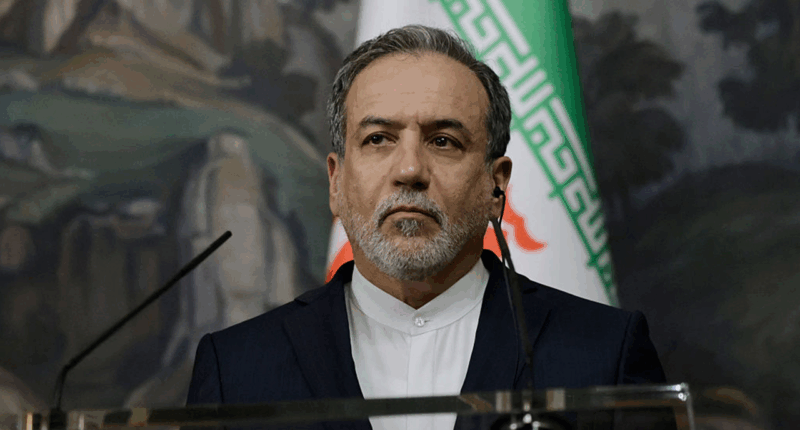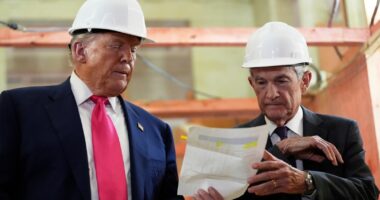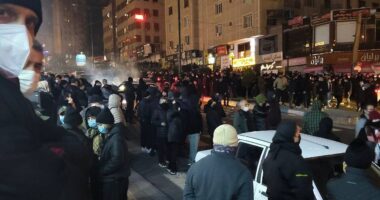Share this @internewscast.com
Iran has declared its decision to continue its nuclear enrichment efforts, as stated by Iranian Foreign Minister Abbas Araghchi in an exclusive conversation with Bret Baier from Fox News. This interview is scheduled to be broadcast on Monday at 6 pm during “Special Report.”
Araghchi pointed out that despite the U.S. seeking to halt Tehran’s progress toward nuclear weapon development by eliminating all uranium enrichment processes, this aim is not likely to succeed. This stance remains firm even in light of potential severe international sanctions.
“Abandoning enrichment is not an option for us; it’s a triumph of our scientists’ hard work. Moreover, it now stands as a matter of national pride,” Araghchi explained in an interview segment previewed by Bret Baier, the anchor and executive editor of Special Report, prior to the complete interview airing.
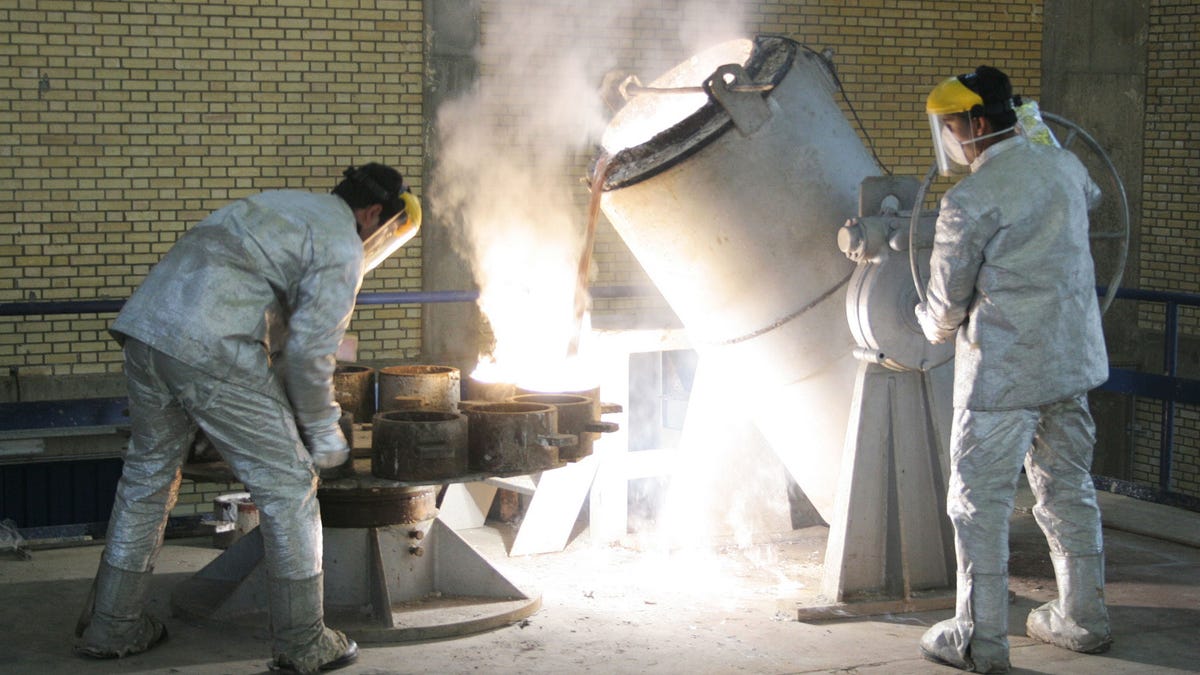
Technicians work inside of a uranium conversion facility producing unit just outside the city of Isfahan, about 254 miles (south of capital Tehran, Iran, at the heart of Iran’s nuclear program, March 30, 2005. (Getty Images)
While nuclear enrichment is a process needed for nations that also rely on nuclear power, Iran’s nuclear energy usage amounts to less than one percent of the nation’s energy consumption.
The U.S. has suggested that given the low amounts of nuclear energy which Iran relies on, it should join a consortium that could potentially involve nations like the UAE and Saudi Arabia for its enriched uranium needs for civil nuclear power use.
But Iran has repeatedly rejected this proposal, with Iranian Supreme Leader Ayatollah Ali Khamenei also referring to Tehran’s capabilities as a source of national pride just last month.
“The number of countries in the world that have achieved a complete nuclear fuel cycle is perhaps fewer than the number of fingers on a person’s two hands,” Khamenei said in early June. “We’re capable of producing nuclear fuel starting from the mine and all the way to the power plant.”
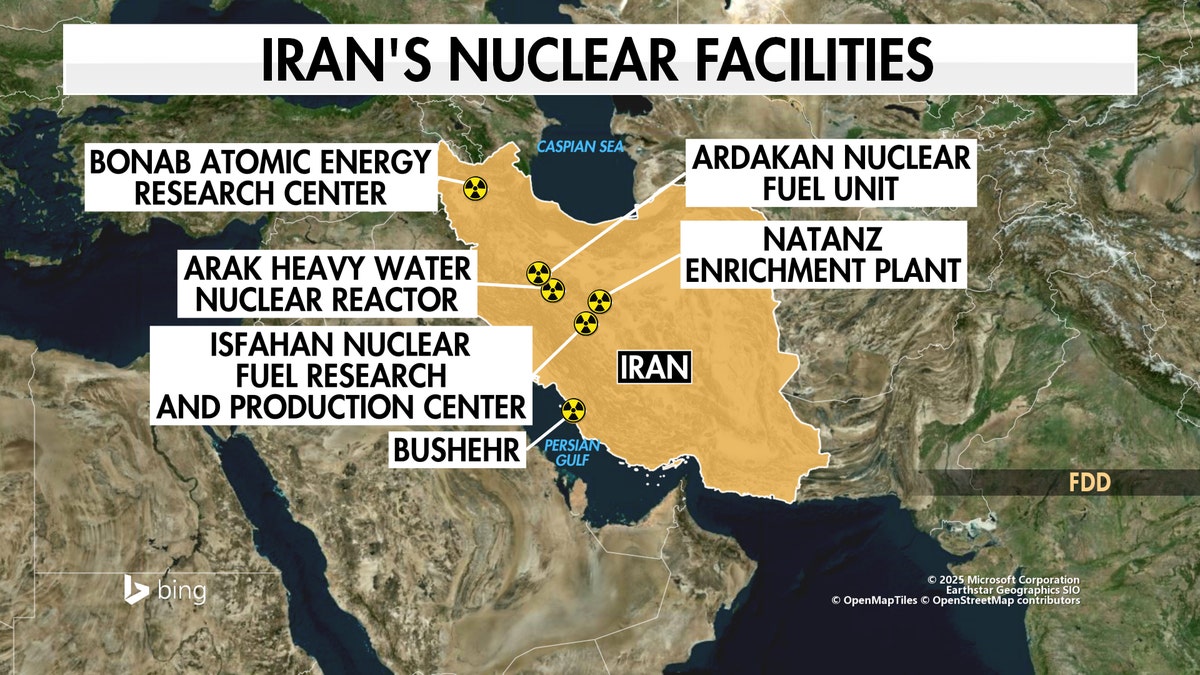
An illustration showing a list of Iran’s nuclear facilities such as Arak’s heavy water nuclear reactor and the Natanz enrichment plant. (FDD/Fox News)
But Iran also faces immense international sanctions and even greater arms restrictions should it fail to reach a nuclear agreement by the end of August – though it is unclear if that agreement must include the U.S. or just European nations including France, Germany and the U.K., also referred to as the E3.
Iranian officials will not only be meeting with its top allies and chief adversaries to the West, Russia and China, on Tuesday, but Tehran is also set to hold talks on Friday with officials from the E3.
Washington and Tehran have yet to resume talks following the U.S. strikes last month.
